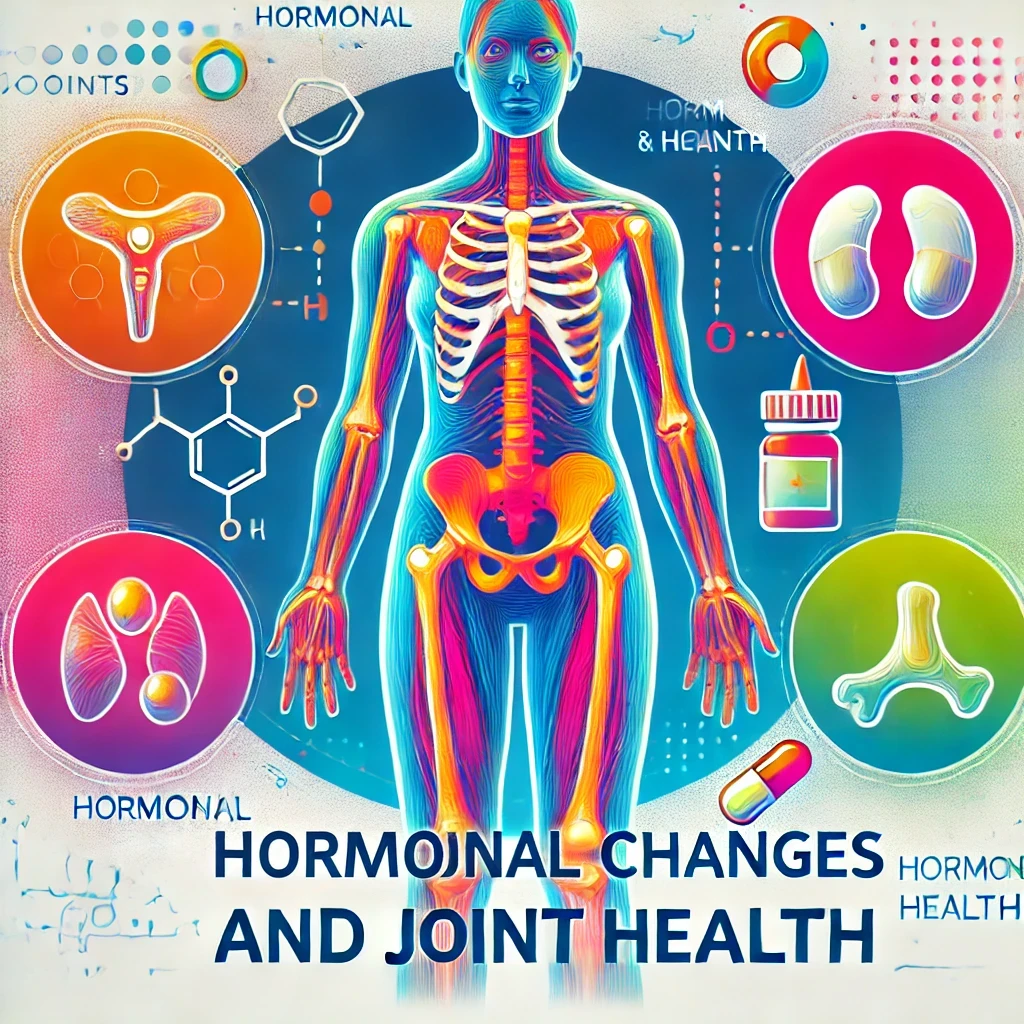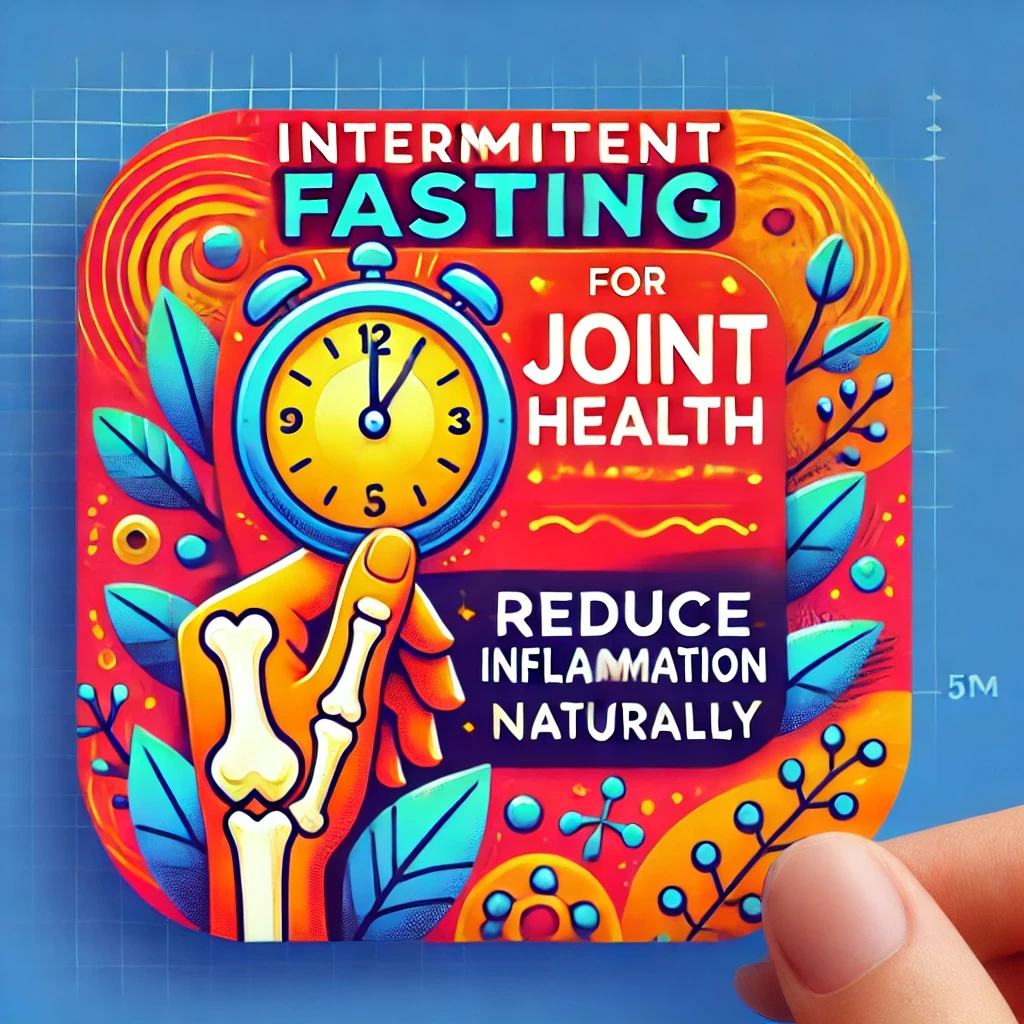
Table of Contents
Joint health is a critical aspect of our overall well-being, influencing our ability to move and perform daily activities. While many factors contribute to joint health, hormones play a particularly significant role. Hormones act as messengers in the body, regulating various physiological processes, including those affecting the joints. Changes in hormone levels can lead to joint discomfort and disorders, highlighting the need to understand their impact.
This article explores the influence of hormonal changes on joint health, detailing how different hormones affect joint function and offering strategies to maintain healthy joints throughout life. From estrogen and testosterone to cortisol and thyroid hormones, each plays a unique role in joint maintenance and health. By understanding these relationships and implementing proactive measures, we can better support our joint health and overall well-being.
What Are Hormones?
Definition and Function
Hormones are chemical substances produced by glands in the endocrine system. They travel through the bloodstream to tissues and organs, where they regulate processes such as growth, metabolism and mood. Hormones are crucial for maintaining homeostasis in the body.
Types of Hormones Relevant to Joint Health
Several hormones influence joint health, including estrogen, testosterone, thyroid hormones, cortisol and insulin. Each of these hormones has a unique role in maintaining the structural integrity and functionality of the joints.
The Role of Estrogen in Joint Health
Estrogen’s Protective Effects
Estrogen is known for its protective effects on bones and joints. It helps maintain bone density and reduces inflammation, which is beneficial for joint health. Estrogen also supports the production of collagen, a protein essential for the structural integrity of joints.
Impact of Estrogen Deficiency
Estrogen deficiency, often occurring during menopause, can lead to increased joint pain and stiffness. The decrease in estrogen levels is associated with a reduction in bone density and an increase in inflammatory markers, contributing to joint discomfort.
Testosterone and Joint Health
Role of Testosterone in Maintaining Joint Health
Testosterone, commonly associated with male health, also plays a vital role in joint health. It helps maintain muscle mass and strength, which are crucial for supporting joints and preventing injuries.
Effects of Low Testosterone Levels
Low testosterone levels, which can occur with aging, are linked to decreased muscle mass and increased body fat. This imbalance can lead to joint stress and an increased risk of joint-related conditions such as osteoarthritis.
Thyroid Hormones and Joint Function
Importance of Thyroid Hormones
Thyroid hormones regulate metabolism, energy levels and overall growth and development. They are essential for maintaining healthy tissues, including joints.
Joint Issues Related to Thyroid Imbalances
Both hyperthyroidism (excess thyroid hormone) and hypothyroidism (insufficient thyroid hormone) can lead to joint problems. Hyperthyroidism can cause joint swelling and pain, while hypothyroidism is associated with joint stiffness and muscle aches.
Cortisol and Its Impact on Joints
The Stress Hormone and Its Effects
Cortisol, known as the stress hormone, is produced by the adrenal glands. It helps regulate the body’s response to stress and inflammation.
Long-Term Implications of Elevated Cortisol
Chronic stress and elevated cortisol levels can lead to inflammation and degradation of joint tissues. This can exacerbate conditions like arthritis and increase the risk of joint injuries.
Insulin and Joint Health
Link Between Insulin and Inflammation
Insulin is a hormone that regulates blood sugar levels. High insulin levels, often resulting from poor diet and lifestyle choices, can promote inflammation and negatively impact joint health.
Managing Insulin Levels for Joint Health
Maintaining stable insulin levels through a balanced diet and regular exercise can help reduce inflammation and support joint health.
Menopause and Joint Health
Hormonal Changes During Menopause
Menopause involves a significant decline in estrogen levels, which can affect joint health. Many women experience increased joint pain and stiffness during this time.
Common Joint Issues in Menopausal Women
Menopausal women often report symptoms such as aching joints, stiffness and increased susceptibility to conditions like osteoarthritis. Hormone replacement therapy (HRT) may be considered to alleviate some of these symptoms.
Andropause and Joint Health
Hormonal Changes in Men
Andropause, often referred to as male menopause, involves a gradual decline in testosterone levels in men. This hormonal shift can affect various aspects of health, including joints.
Joint Health Concerns During Andropause
Men undergoing andropause may experience joint pain and decreased muscle mass, leading to joint instability and a higher risk of injuries. Strength training and testosterone replacement therapy (TRT) can be beneficial.
Pregnancy and Joint Health
Hormonal Fluctuations During Pregnancy
Pregnancy involves significant hormonal changes, including increased levels of relaxin, which helps prepare the body for childbirth by loosening ligaments and joints.
Joint Pain and Discomfort in Expectant Mothers
Many pregnant women experience joint pain and discomfort, particularly in the lower back and pelvis. Gentle exercise, proper posture and supportive footwear can help manage these symptoms.
Puberty and Joint Development
Hormonal Surges During Puberty
Puberty involves rapid hormonal changes that contribute to growth and development, including the growth of bones and joints.
Impact on Joint Growth and Health
During puberty, proper nutrition and physical activity are crucial for healthy joint development. Ensuring adequate intake of calcium and vitamin D supports bone health.
Managing Hormonal Imbalances
Strategies for Maintaining Hormonal Balance
Maintaining hormonal balance is essential for joint health. This can be achieved through a combination of lifestyle changes, dietary adjustments and medical interventions.
Lifestyle Changes and Medical Interventions
Regular exercise, stress management, and a healthy diet are key components of maintaining hormonal balance. In some cases, hormone replacement therapy or other medical treatments may be necessary.
Diet and Hormonal Health
Nutritional Tips for Supporting Hormone Levels
A balanced diet rich in whole foods, healthy fats, and lean proteins supports hormonal health. Foods like leafy greens, nuts, seeds and fatty fish are particularly beneficial.
Foods to Avoid and Include
Avoiding processed foods, excessive sugar and trans fats can help maintain hormonal balance. Including nutrient-dense foods like fruits, vegetables, and whole grains supports overall health.
Exercise and Hormonal Balance
Role of Physical Activity in Hormone Regulation
Regular physical activity helps regulate hormones by reducing stress and balancing blood sugar levels. Exercise also promotes the release of endorphins, which have mood-enhancing effects.
Recommended Exercises for Joint Health
Low-impact exercises like swimming, walking and yoga are excellent for maintaining joint health without putting excessive strain on the joints.
Conclusion
Understanding the impact of hormonal changes on joint health is crucial for maintaining mobility and quality of life. Hormones like estrogen, testosterone, thyroid hormones, cortisol and insulin play significant roles in joint function and health. By managing hormonal imbalances through diet, exercise and medical interventions, individuals can support their joint health and reduce the risk of joint-related issues. If you experience persistent joint pain or suspect a hormonal imbalance, consult with a healthcare provider for personalized advice and treatment options.
FAQs
Can hormonal imbalances cause joint pain?
Yes, hormonal imbalances can lead to joint pain and stiffness. For example, low estrogen levels during menopause can increase joint discomfort.
How can I manage joint pain related to hormonal changes?
Managing joint pain involves maintaining a balanced diet, regular exercise and stress management. Hormone replacement therapy may also be considered in some cases.
Are there specific foods that support joint health during hormonal changes?
Yes, foods rich in omega-3 fatty acids, antioxidants and vitamins like calcium and vitamin D support joint health. Include fatty fish, leafy greens and nuts in your diet.
Can stress and cortisol levels affect joint health?
Yes, chronic stress and elevated cortisol levels can lead to inflammation and joint pain. Managing stress through relaxation techniques and regular exercise is important.
How do pregnancy hormones affect joints?
Pregnancy hormones like relaxin loosen ligaments and joints, which can lead to joint pain and discomfort. Gentle exercise and proper posture can help manage these symptoms.


